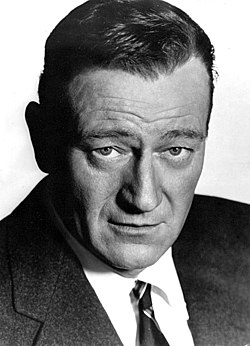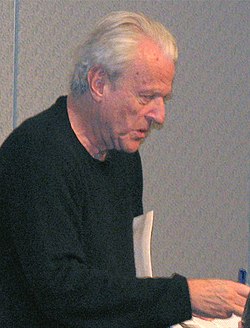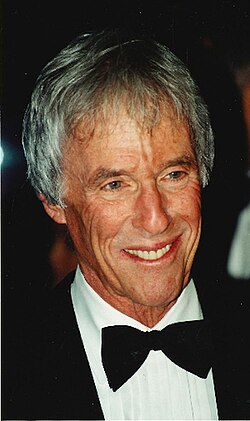This article needs additional citations for verification .(September 2015) |
| 42nd Academy Awards | |
|---|---|
 | |
| Date | April 7, 1970 |
| Site | Dorothy Chandler Pavilion, Los Angeles |
| Produced by | M. J. Frankovich |
| Directed by | Richard Dunlap Jack Haley Jr. |
| Highlights | |
| Best Picture | Midnight Cowboy |
| Most awards | Butch Cassidy and the Sundance Kid (4) |
| Most nominations | Anne of the Thousand Days (10) |
| TV in the United States | |
| Network | ABC |
| Duration | 2 hours, 25 minutes |
| Ratings | 43.4% (Nielsen ratings) |
The 42nd Academy Awards were presented April 7, 1970, at the Dorothy Chandler Pavilion in Los Angeles, California. For the second year in a row, there was no official host. This was the first Academy Awards ceremony to be broadcast via satellite to an international audience, although Brazil was the only country outside North America to air the event live. [1]
Contents
- The ceremony
- Winners and nominees
- Honorary Award
- Jean Hersholt Humanitarian Award
- Multiple nominations and awards
- Presenters and performers
- Performers
- See also
- References
One year after Oliver! became the only G-rated film to win Best Picture, Midnight Cowboy became the first and only X-rated film to win, though its rating was changed in 1971 to R after the MPAA revised its ratings criteria. Only one other X-rated film has been nominated for Best Picture since, Stanley Kubrick's A Clockwork Orange (1971), which was also subsequently downgraded to an R rating (though this was a result of cuts to the original film).
They Shoot Horses, Don't They? set an Oscar record by receiving nine nominations without one for Best Picture. This was the last time until the 68th Academy Awards wherein none of the four winning performances came from Best Picture nominated films, as well as the first ceremony in which every acting nomination was in color. Jack Nicholson, who would go on to become the most-nominated male performer in Oscars history, received his first nomination, for Best Supporting Actor for Easy Rider .





